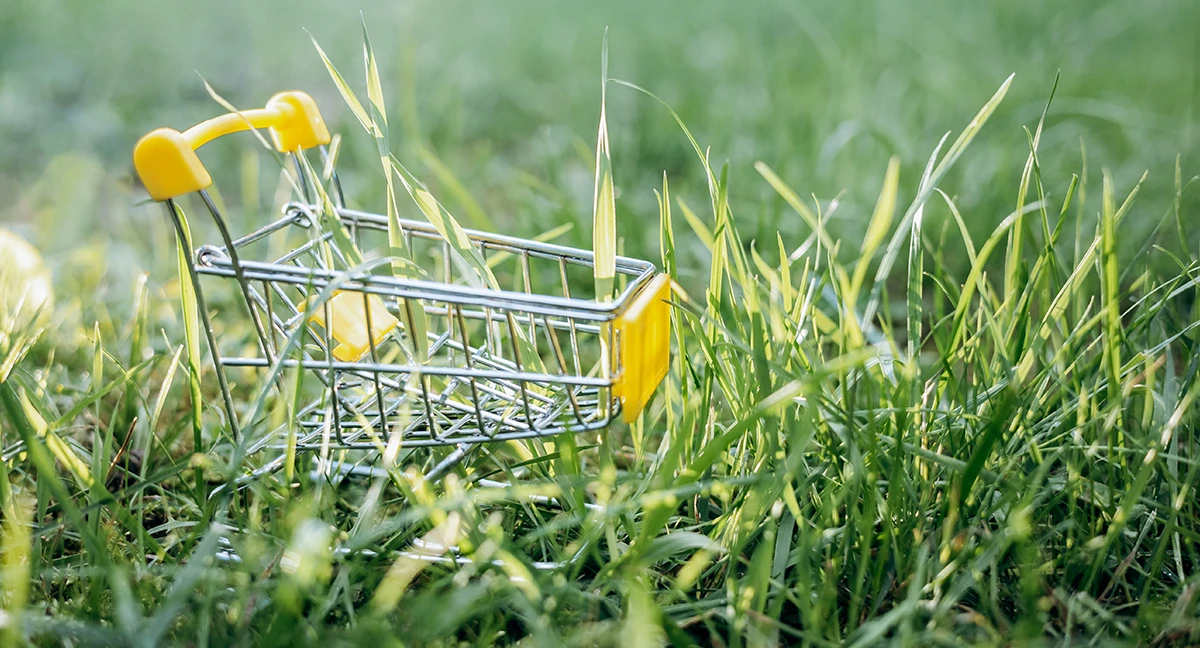Reduce waste in e-Commerce with RTP

Contact us
Get in touchThe traditional eCommerce model prioritises profit at the expense of our planet. With vast quantities of goods now packed into cardboard boxes and shipped worldwide, eCommerce is responsible for a staggering amount of waste.
Although carbon emissions from online shopping are, on average, 36% lower than physical stores, packaging used in eCommerce is responsible for approximately six times more emissions than that used on the high street. This is largely due to the widespread use of cardboard and individual packaging in eCommerce, which is used once and discarded.
This practice is unsustainable. Cardboard boxes have an average cradle-to-grave carbon footprint of around 1kg of CO2 equivalent, and 175 million tonnes of corrugated boards are produced yearly. Climate experts are concerned and with good reason - online shopping continues to grow its market share and by 2025 will account for almost a quarter of all retail purchases.
Unless retailers shift to a more sustainable packaging model that actively minimises waste, the problem will only become worse.
One of the main issues dominating the packaging landscape is the shortage of raw materials. As key reserves dwindle, or shipments are caught up in increasing supply chain disruption, packaging becomes more expensive to produce – and these costs may be passed on to consumers. Around 40% of businesses report a rise in the cost of goods, with more than a quarter (27%) claiming raw materials are the main reason they have to increase prices.
These price hikes, combined with the impact of discarded packaging, may lead to retailers operating in this throwaway model finding themselves left behind. Most consumers (73%) claim they will shift buying habits to reduce their environmental impact, favouring sustainability over convenience.
Plastic returnable transit packaging (RTP) addresses both of these issues. Unlike cardboard, RTP is built to make many journeys over its lifetime, drastically reducing raw material consumption and waste in one fell swoop. By removing the need for continual spending on new packaging, RTP can also help retailers save money long-term and avoid passing costly price increases on to their customers.
What is more, Schoeller Allibert’s RTP contains high levels of recycled content and is designed to be fully recyclable, meaning that at the end of its life, it can be ground down and reprocessed into new crates and containers, helping to reduce use of virgin raw materials further.
The outcome of all this is a significant decrease in emissions by as much as 88%.
That is not to say that plastic RTP is 100% waste-free. By nature, RTP is transported around a lot, which means it is sometimes overlooked or misplaced. Every lost item wastes resources in terms of new material required and taking potential recyclate out of the supply chain.
The International Data Corporation (IDC) has identified real-time inventory and supply chain visibility as among modern retailers' biggest challenges. This is because RTP needs to be tracked through distribution centres to stores and back again and errors in this process can lead to it being lost.
However, by connecting assets with internet of things (IoT) technology, it becomes simple to ensure immediate visibility over these crucial assets.
Schoeller Allibert’s SmartLink® platform provides one such solution. Compatible with a wide range of our products, this secure cloud-based platform uses LPWAN wireless technology to connect individual containers and turn any supply chain into an intelligent one capable of being managed from a single source.
This technology sees discrete sensors embedded within the SmartLink®-equipped pack that transmit live data on everything from temperature to location. With predefined geolocation tracking and geofencing supported, SmartLink® can be used to create alerts when containers enter or leave a specific area. Unique barcode IDs help to catalogue inventory and provide convenient asset management.
Using SmartLink® provides full oversight of where inventory is at any time and helps to minimise losses and thefts. Ultimately, this supports retailers in protecting their investments and enabling them to maximise the sustainability of their operations.
With packaging optimised for reducing waste, achieving real sustainability in retail eCommerce is looking more and more possible. RTP, designed for long lifespans, can leverage waste as a resource to reduce reliance on raw materials, helping to break the ‘consume-dispose’ eCommerce model.
Contact us
Get in touchContact us
Inspiration
Related
relevantItems.news.intro
Navigating EU Sustainability Regulations in Transport Packaging—A Roadmap for Compliance and Opportunity
We’re thrilled to introduce our latest whitepaper: New EU sustainability regulations and their impact on packaging. Designed as your essential resource, this whitepaper breaks down the complex, changing landscape of EU s...
Read newsSchoeller Allibert’s near-term science-based emissions reduction target validated by SBTi
At Schoeller Allibert, we are excited to announce that our greenhouse gas (GHG) emission reduction targets have been validated as science-based by the Science Based Targets initiative (SBTi). This significant milestone m...
Read newsSmartLink: Transforming Logistics with Sustainability and Efficiency
In an era defined by environmental consciousness and sustainability goals, businesses are seeking innovative solutions to reduce their carbon footprint and drive positive change. At the forefront of this movement is Smar...
Read news

